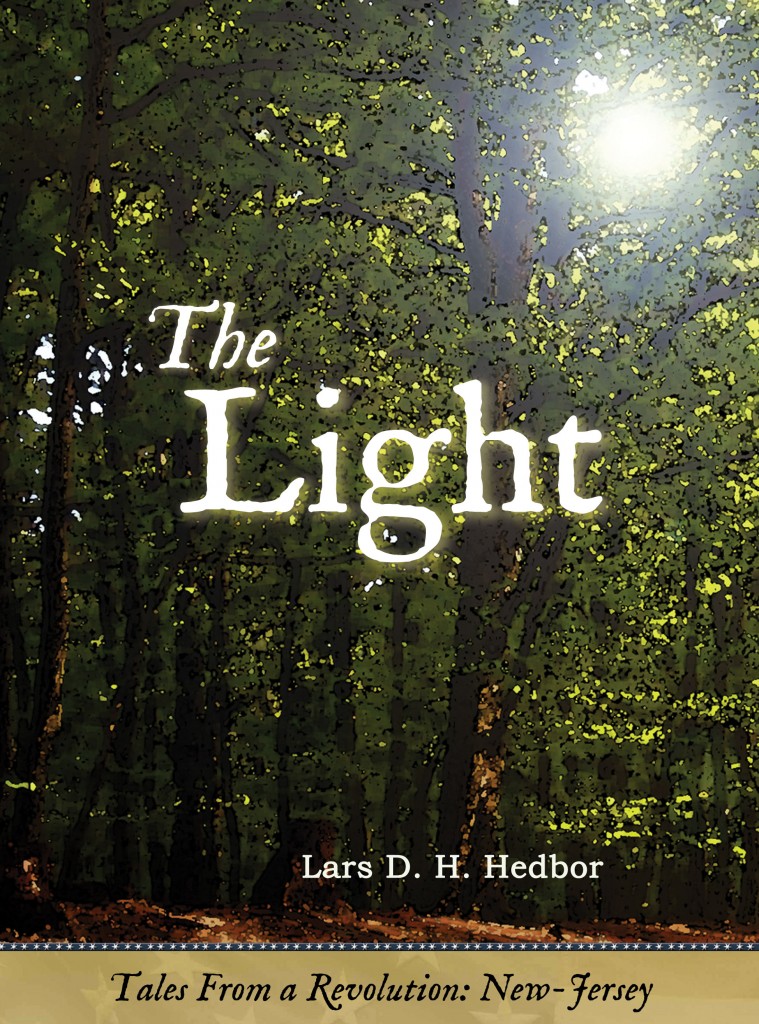Caleb and Captain Mallett were just fitting the last of the shaped ribs into the first canoe when the sound of the village church bell pealed out faintly over the woods.
Straining to fit the cedar slat under the gunwale as it pulled the birch bark skin taut as a drumhead, Mallett grunted, “Must be that someone has had a house afire.”
Caleb, who stood on the side opposite, holding the clamp that secured the other end of the slat, scanned the horizon above the woods, and said, “I do not see any smoke.”
With a last push, Mallett forced the rib under the rim of the gunwale, where it snapped against the birch bark and held its position. As the men grinned at their accomplishment, the bell continued to peal furiously.
Mallett looked up and down the length of the canoe, nodding and grinning. “‘Tis a fine-looking craft,” he said. “We have only to seal the seams, and she’ll be ready for the lake. We will fit the last of the ribs into your canoe in a few days, once they have finished with the shaping.”
He frowned toward the village, where the bell was still persisting. “I see no smoke, either, and yet they continue to ring. Perhaps there has been an attack by the Indians… though these Abenaki do not seem to have an interest in such warlike acts, these are certainly dangerous times once again. Let us be off, to see what aid might be needed.”
Mallett did not bother to saddle his horse, but merely put the bit in the stallion’s mouth, and pulled himself up on its back. He called out to Caleb, “Here, you ride behind me. Louis is a strong horse, certainly a good deal stronger than his namesake on the throne in Versailles.” Both Mallett and the horse snorted, and Mallett added, “The horse is smarter, too.”
Caleb smiled and took Mallett’s proffered hand to clamber up behind the older man. Scowling now at the still-pealing bell, Mallett growled, “Hold tight, lad, we’re going to ride hard.” Since he did not want to slide over the horse’s rump and find himself suddenly sitting on the road, Caleb heeded Mallett’s advice, clamping his hands around the rider’s wiry sides.
With a nod, Mallett snapped the reins, and kicked the horse into a smooth, speedy pace over the ground. By the time they pulled up before the blockhouse, where a crowd had gathered, the bell had stopped pealing, but MacGregor stood at the top of the steps, reading loudly from a broadside.
Captain Mallett and Caleb dismounted and Mallett tied up his horse before they joined the crowd, coming into earshot of the general store proprietor.
“…when a long train of abuses and usurpations, pursuing invariably the same object evinces a design to reduce them under absolute despotism, it is their right, it is their duty, to throw off such government, and to provide new guards for their future security.”
As he drew breath, the man beside Caleb whispered excitedly, “‘Tis a declaration of independence for the colonies from the Crown, passed by the Congress this week past!” Caleb’s eyebrows went up, and even Mallett seemed surprised, pursing his lips thoughtfully and nodding to himself.
“Such has been the patient sufferance of the Colonies, and such is now the necessity which constrains them to alter their former systems of government. The history of the present King of Great Britain is a history of repeated injuries and usurpations, all having in direct object the establishment of an absolute tyranny over these states. To prove this, let facts be submitted to a candid world.”
MacGregor’s voice rang out clearly as he read through the long list of particular complaints against the King and Parliament, winding up to the conclusion.
“We, therefore, the representatives of the United States of America, in General Congress, Assembled, appealing to the supreme Judge of the world for the rectitude of our intentions, do, in the name, and by the authority of the good people of these Colonies, solemnly publish and declare, that these United Colonies are, and of right ought to be free and independent states; that they are absolved from all allegiance to the British Crown, and that all political connection between them and the state of Great Britain, is and ought to be totally dissolved; and that as free and independent States, they have full power to levy war, conclude peace, contract alliances, establish commerce and to do all other acts and things which independent States may of right do. And for the support of this Declaration, with a firm reliance on the protection of Divine Providence, we mutually pledge to each other our lives, our fortunes and our sacred honor!”
As MacGregor lowered the broadside, his forehead shining with sweat and his face red with exertion, a great cheer arose from the crowd assembled before the blockhouse. Someone began ringing the church bell again, and Caleb felt his throat becoming raw before he even realized that he was contributing to the din himself.
Looking around at the other people gathered, he saw men weeping openly and embracing, even those who had had long standing enmities between them. Mallett was smiling widely and nodding with a look of deep satisfaction on his face.
He leaned close to Caleb and said into his ear, “‘Tis a fine, fine statement they’ve here published. Mark this moment well, lad, for you shall never see another so filled with import as this, so long as you live. I know that I have not, in my many years.”

